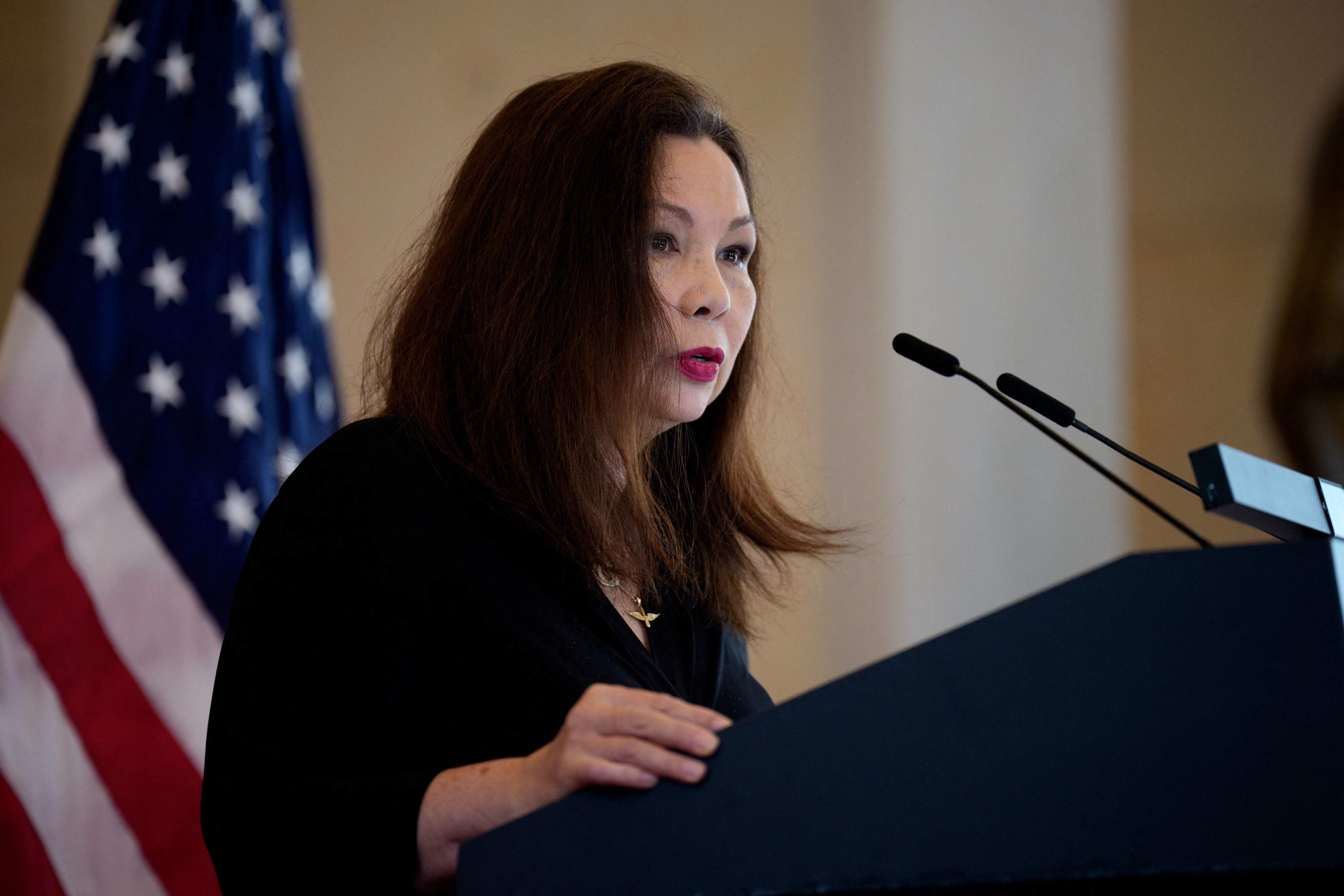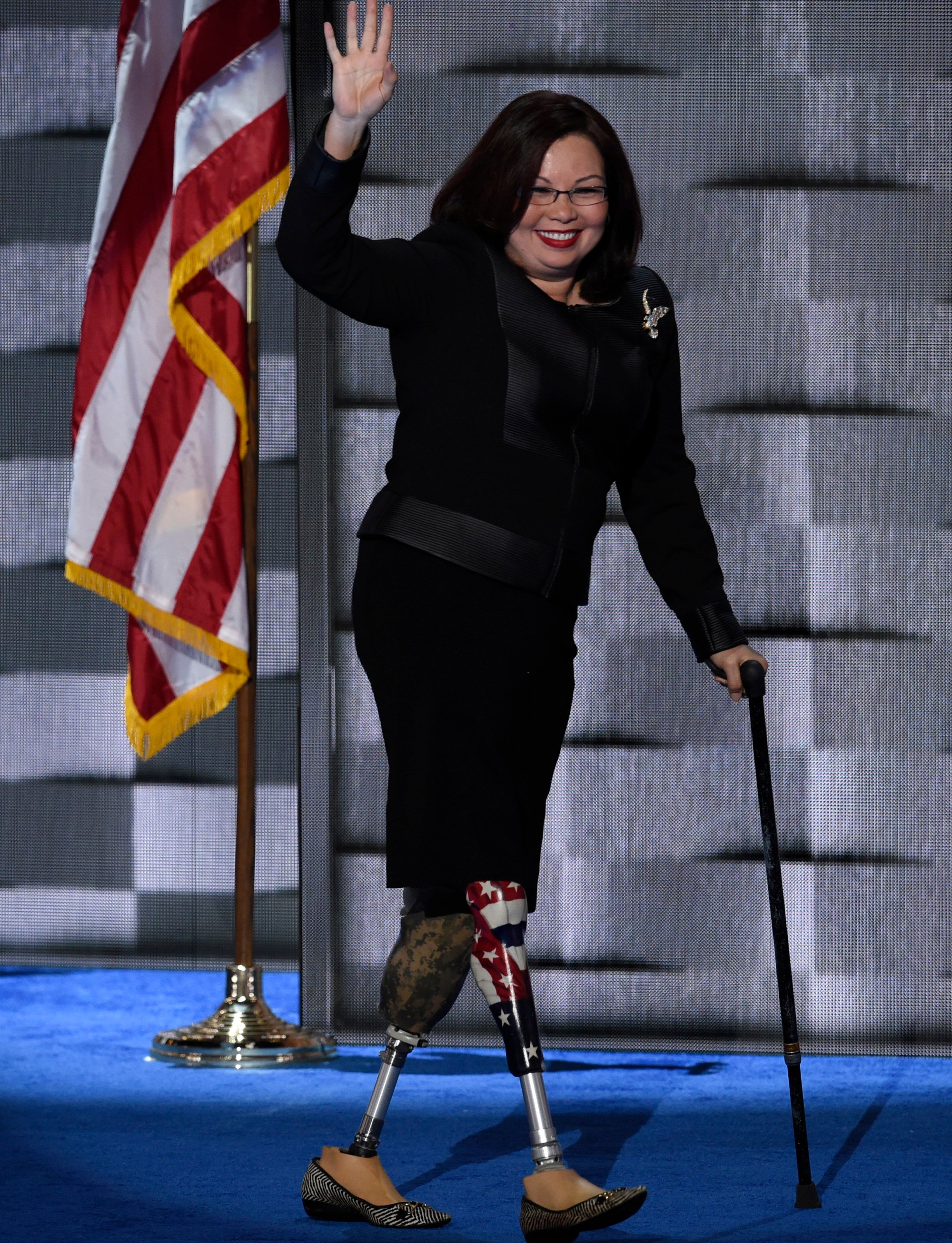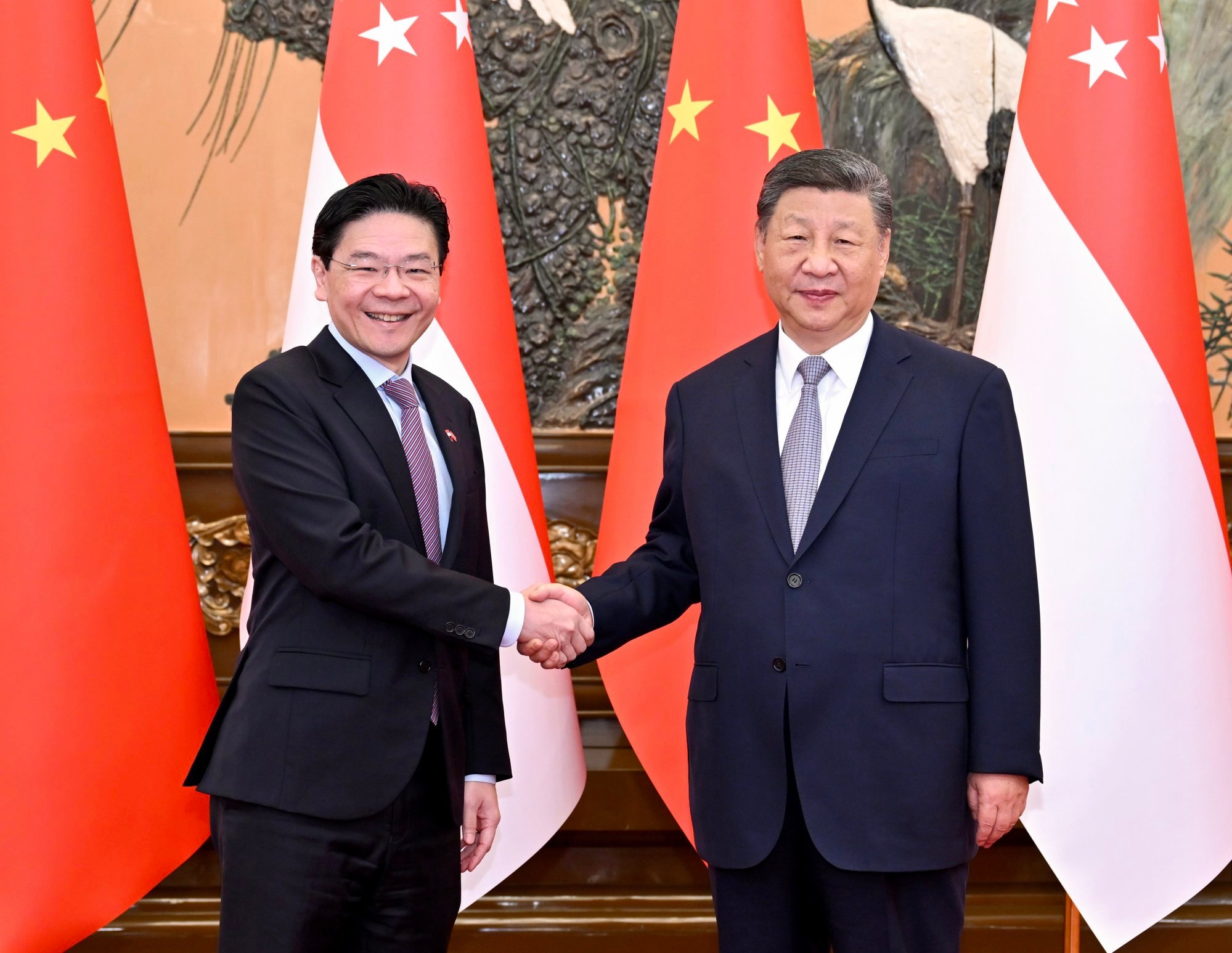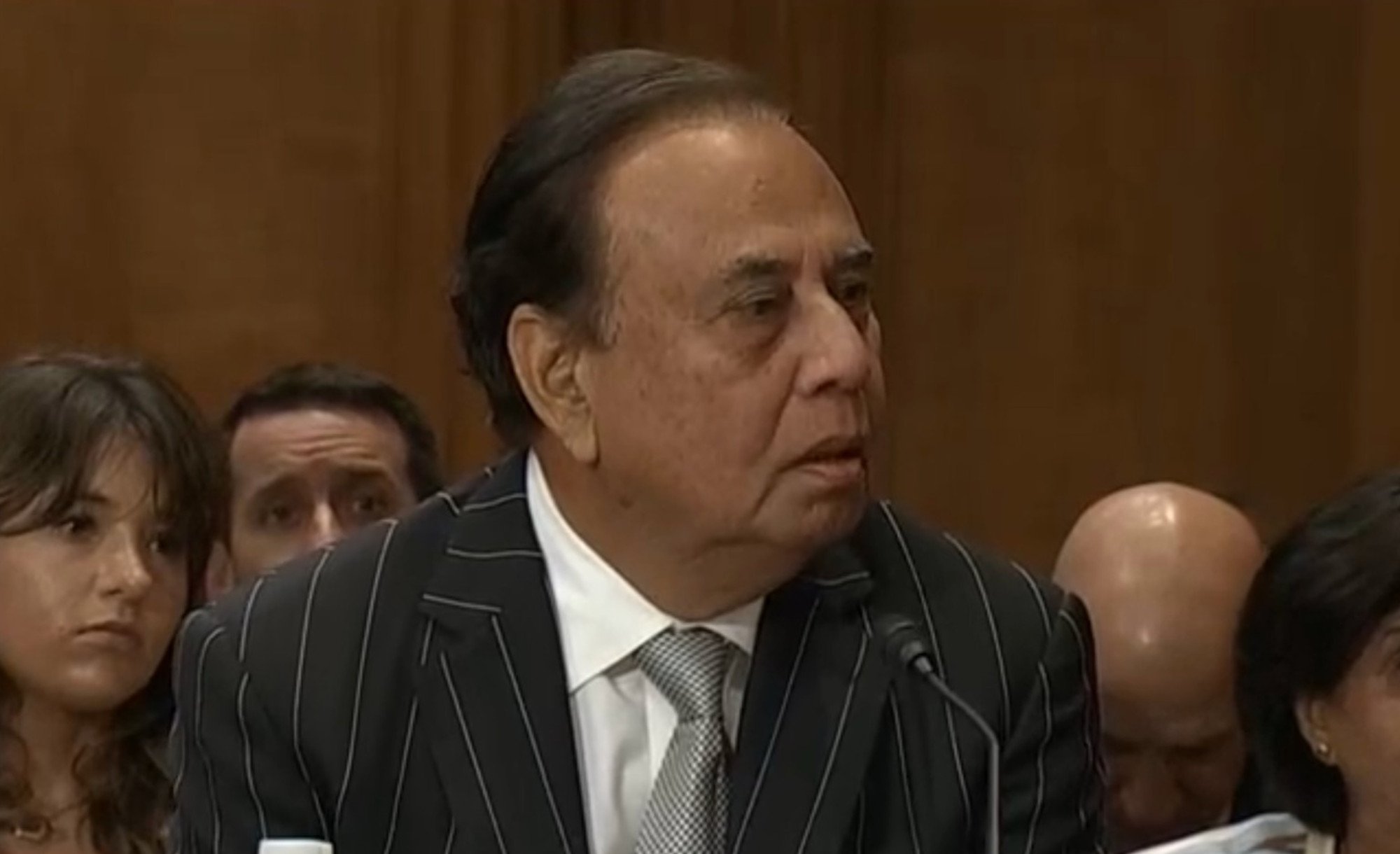Is Singapore key for the US to fight against China as Tammy Duckworth says?
At a Senate hearing, Duckworth chides Anjani Sinha, Donald Trump’s pick as ambassador to Singapore, for his ignorance of the city state

Remarks by a US senator labelling Singapore as a key place for “fighting against” major rival China have offered a revealing glimpse into how some American politicians view the city state, amid Washington’s regional power struggle with Beijing.
The comments came to light after clips of a Senate confirmation hearing on Wednesday showed an exasperated Democratic Senator Tammy Duckworth admonishing Anjani Sinha, US President Donald Trump’s ambassador nominee to Singapore.
“You want to be ambassador to Singapore, one of the most important … friends we have in the Indo-Pacific, a key place that we’re going to be fighting against our greatest adversary in the region, the PRC,” said Duckworth, a Thai-American veteran, as she referred to the People’s Republic of China.
Sinha, a Florida orthopaedic surgeon who reportedly plays golf at the same country club as Trump, grossly overestimated how large the US’ trade surplus was with Singapore last year and did not know when Singapore was going to next chair Asean or the Association of Southeast Asian Nations.
After chiding Sinha for not doing his “homework” on the city state, the senator from Illinois stressed the importance of Singapore to the US, adding: “This nation is too important to the United States, to Asean, to the entire region.
“And frankly, I think the mission is important to US interests and national security, and it should actually be a foreign service officer. But I have even larger concerns with the political pick when that political pick is somebody as unqualified as you.”

Analysts told This Week in Asia that while Singapore had close ties with the US, especially in terms of its security cooperation, it did not see itself as being on the frontline for America’s response to China.
Singapore has long held the position that it is neither pro-China nor pro-America but “pro-Singapore”. While China has been Singapore’s largest trading partner, the city state has long-standing defence ties with the US.
In April, Singapore Prime Minister Lawrence Wong noted that both powers claimed they did not wish to force countries to choose sides. “But in reality, each seeks to draw others closer into their respective orbits. This rivalry is already reshaping our world, and will continue to define the geopolitical landscape for years to come.”
Speaking during a lecture organised by the foreign ministry, Wong stressed that Singapore would continue to be “a safe harbour, a global emporium, and a trusted hub for all sides to engage”.
This came right after the Trump administration announced a 10 per cent tariff on Singapore despite both sides having a free trade agreement and the US having a trade surplus with Singapore. Wong expressed disappointment with the move and said in Parliament: “These are not actions one does to a friend.”

Benjamin Ho, an assistant professor at the S. Rajaratnam School of International Studies (RSIS), pointed out that Duckworth’s comments offered a rare glimpse into how important Singapore was to the US outside the usual diplomatic niceties.
Unhandled type: inline-plus-widget {“type”:”inline-plus-widget”}
He noted that Duckworth had grown up in Southeast Asia and spent time in Singapore, which would give her a more intimate understanding of the country than most other US senators. Duckworth, who was born to an American father and a Thai mother, reportedly went to Singapore American School as a teenager in the 1980s.
“If you marry these two characteristics together – her own personal experience being in Singapore and the fact that the PRC represents, indeed, the biggest challenge to the US, then you’ve got that statement,” Ho said.
Ho argued that he would not read her statement as meaning that Singapore was going to be the frontline of the US’ contention with China, since it had other allies in the region, but that the statement was her personal view.
“To translate her words to mean that the United States is going to use Singapore as a front line in its challenge and response against China, and this will be translated into actual foreign policy, is stretching it a bit too far,” Ho said.
Joseph Liow, Tan Kah Kee chair in comparative and international politics and senior research adviser at RSIS, similarly noted that while Singapore was not a formal ally of the US like Japan or the Philippines, it had deep and extensive security cooperation with the superpower.

“This is a known fact and Singapore has no qualms acknowledging it. This is because its relationship with the US does not preclude it having strong ties with other countries, nor is the defence relationship directed at other countries,” Liow said.
“The premise has always been that Singapore sees the US as a major security actor in the region by way of being an offshore balancer,” he added, referring to the strategic concept of having a major power present in the region to ensure stability and dissuade adventurism of any other regional power that might seek to assert itself in a destabilising way.
Joanne Lin, a senior fellow and coordinator at the Asean Studies Centre at the ISEAS-Yusof Ishak Institute, argued that viewing Singapore solely through the lens of US-China strategic competition was reductive and risked misreading Singapore’s foreign policy posture.
“Singapore, like Asean, values strategic autonomy and operates with a strong sense of agency. It prefers to engage all major powers constructively based on its national interests,” Lin said.
“Rather than framing Singapore as a frontline outpost in the rivalry with China, it’s far more productive and respectful to recognise Singapore’s value on its own terms, [that is] as a trusted partner with deep economic, defence, and people-to-people linkages, and a principled voice on regional issues,” she added.